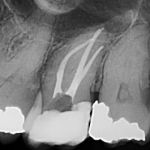- #how-to-prevent-tooth-decay-with-diet-changes-and-habits-effectively
- #understanding-what-causes-tooth-decay
- #dietary-choices-that-protect-your-teeth
- #daily-habits-that-strengthen-oral-health
- #real-life-cases-of-preventing-tooth-decay
- #foods-and-drinks-to-limit-or-avoid
- #role-of-hydration-and-saliva-in-prevention
- #professional-guidance-and-dental-support
How to Prevent Tooth Decay with Diet Changes and Habits Effectively
Maintaining healthy teeth goes far beyond brushing twice a day. If you’ve been wondering how to prevent tooth decay with diet changes and habits effectively, the answer lies in combining mindful eating with consistent routines that support oral health. Small changes to what you eat, how you clean your teeth, and the habits you build daily can dramatically reduce your risk of cavities. When you need expert advice or carefully selected dental care products, Family Dentistry Online provides trusted recommendations that make the journey easier.
1. Understanding what causes tooth decay
Tooth decay happens when bacteria in the mouth feed on sugars, producing acids that erode enamel. Left unchecked, this leads to cavities, gum problems, and even tooth loss. Genetics play a role, but daily diet and lifestyle choices are the real game changers. By learning how decay develops, you gain control over the levers you can adjust—like sugar intake, frequency of snacking, and oral hygiene routines.
The hidden culprits
Many people associate decay only with candy, but constant sipping of soda, sweetened coffee, or even fruit juice can be equally harmful. These drinks bathe teeth in acid for hours if consumed frequently.
2. Dietary choices that protect your teeth
What you eat can either harm or strengthen your teeth. Foods rich in calcium, phosphorus, and vitamin D help remineralize enamel. Crunchy vegetables like carrots and celery act as natural toothbrushes, scrubbing away plaque while stimulating saliva production. Cheese and yogurt not only deliver calcium but also help neutralize acids after meals.
Case in point
A college student who swapped out daily sodas for sparkling water and added more dairy snacks reported fewer cavities at her next dental checkup. The change seemed small but showed powerful results over just six months.
3. Daily habits that strengthen oral health
Consistent oral hygiene is the backbone of cavity prevention. Brushing twice daily with fluoride toothpaste, flossing once a day, and rinsing with mouthwash can significantly reduce bacterial buildup. Timing also matters—brushing after breakfast and before bed helps protect teeth during high-risk periods.
Adding protective rituals
Chewing sugar-free gum after meals boosts saliva, which acts as your body’s natural defense against acid attacks. Carrying a travel-sized brush or floss picks also makes it easier to maintain good habits on the go.
4. Real-life cases of preventing tooth decay
Online forums are full of people who reversed their oral health trajectory with small adjustments. One viral story involved a young parent who stopped giving her children bedtime juice. Within a year, their dentist reported healthier enamel and fewer cavities. Another case highlighted an office worker who began bringing cut vegetables instead of processed snacks, leading to noticeably improved dental checkups.
Takeaway lesson
These stories illustrate that preventing tooth decay doesn’t require dramatic changes—just thoughtful substitutions and consistent effort.
5. Foods and drinks to limit or avoid
Not all foods are equal when it comes to dental health. Sticky candies, sugary sodas, and starchy snacks like chips cling to teeth and feed harmful bacteria. Even dried fruits, often seen as healthy, can be risky because they stick in grooves and act much like candy. Acidic foods like citrus, when eaten excessively, can weaken enamel over time.
Moderation strategy
If you enjoy these foods, limit them to mealtimes and follow with water or a tooth-friendly snack like cheese. This minimizes the window of acid exposure.
6. Role of hydration and saliva in prevention
Saliva is your body’s unsung hero in oral defense. It washes away food particles, neutralizes acids, and provides minerals that help repair enamel. Staying hydrated by drinking plenty of water supports saliva production. Chewing fibrous foods and sugar-free gum also stimulates saliva flow.
Why water is key
Communities with fluoridated water have lower rates of cavities, a clear reminder that hydration supports more than just overall health—it directly shields your teeth.
7. Professional guidance and dental support
Even with excellent diet and habits, professional care matters. Regular dental checkups catch early signs of decay, while cleanings remove hardened plaque. Dentists may recommend sealants for children or fluoride treatments for adults at higher risk. For families seeking reliable services and educational resources, Family Dentistry Online connects you with solutions tailored to your needs.
When to seek help
If you notice persistent sensitivity, discoloration, or pain, don’t wait until it worsens. Early intervention makes treatment easier and less costly.
8. Building a lifestyle that supports healthy teeth
Ultimately, learning how to prevent tooth decay with diet changes and habits effectively is about building sustainable routines. Choose nutrient-dense foods, keep up with oral hygiene, and see your dentist regularly. Over time, these practices don’t just prevent decay—they give you confidence in your smile and peace of mind about your health.
Final thought
Tooth decay is common, but it’s not inevitable. With the right knowledge and tools, you can protect your teeth for life. And when you need guidance, Family Dentistry Online is here to support your family every step of the way.







 Valley View Dental4.0 (1195 review)
Valley View Dental4.0 (1195 review) Montvale Dental Group4.0 (121 review)
Montvale Dental Group4.0 (121 review) Westridge Dental Group: Kasper Robert DDS4.0 (11 review)
Westridge Dental Group: Kasper Robert DDS4.0 (11 review) Open Door Family Medical Center- Sleepy Hollow4.0 (215 review)
Open Door Family Medical Center- Sleepy Hollow4.0 (215 review) North Penn Endodontics Group4.0 (87 review)
North Penn Endodontics Group4.0 (87 review) Cherry Hill Family Dental3.0 (471 review)
Cherry Hill Family Dental3.0 (471 review) The Importance of Oral Health Education During Pregnancy for a Healthy Pregnancy
The Importance of Oral Health Education During Pregnancy for a Healthy Pregnancy Best Tips for Brushing Your Teeth Properly for Healthy Gums: Essential Techniques for Oral Health
Best Tips for Brushing Your Teeth Properly for Healthy Gums: Essential Techniques for Oral Health Why Skipping Dental Checkups Can Lead to Bigger Oral Health Problems
Why Skipping Dental Checkups Can Lead to Bigger Oral Health Problems Advantages of Porcelain Dental Restorations
Advantages of Porcelain Dental Restorations How Can Diabetes Cause Tooth and Gum Problems? Preventing and Managing Oral Health Issues
How Can Diabetes Cause Tooth and Gum Problems? Preventing and Managing Oral Health Issues Healthy Habits for Promoting Good Oral Health and Hygiene: Tips for a Healthy Smile
Healthy Habits for Promoting Good Oral Health and Hygiene: Tips for a Healthy Smile